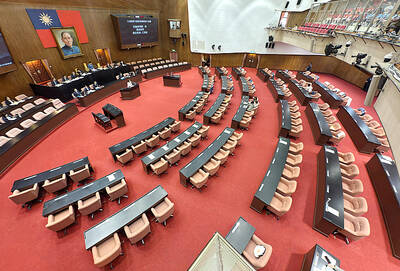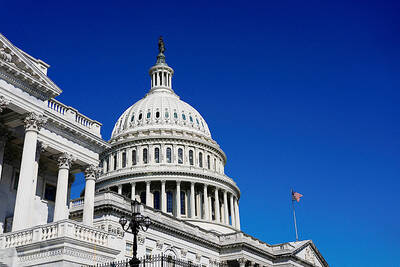Brown-Forman Corp’s Paul Varga and Johnson & Johnson’s William Weldon are among chief executive officers left behind in this year’s stock-market rebound even after they created the most value for their companies.
Brown-Forman, the maker of Jack Daniel’s whiskey and Southern Comfort liqueur; J&J, the world’s biggest health-products company; and 30 other Standard & Poor’s 500 Index companies rallied less than 10 percent this year as their managers posted better-than-average sales and efficiently invested capital, data compiled by Bloomberg show. Companies with the biggest stock gains had among the lowest scores in a ranking known as economic value added.
Money managers ignored profitability to snap up stocks that dropped the most in the credit crisis, leaving opportunities for value investors next year, Raiffeisen Capital Management and Credit Andorra said. They’re buying this year’s laggards, betting companies with the highest returns on shareholders’ capital will be rewarded as the US Federal Reserve prepares to raise interest rates and the government removes stimulus.
CREATING VALUE
Fewer than 215 companies in the S&P 500 created value last year as the US economy experienced the worst contraction since the Great Depression, showed data compiled by Bloomberg based on consulting firm Stern Stewart & Co’s EVA model. Their so-called return on invested capital exceeded the cost of funding their operations, the economic value added data show.
Thirty-two of those companies are projected to increase sales or report a smaller drop than the 5.9 percent median for the S&P 500 this year, while posting an equity-market advance that trailed 10 percent, Bloomberg data show. Shareholders missed out as the benchmark index for US stocks rose 25 percent last year and 67 percent during the past nine months, the most in seven decades, after the government lent, spent or guaranteed more than US$11 trillion to end the financial crisis.
MORE RELIABLE
EVA, also known as economic profit, is a more reliable gauge of management performance because it treats the price of intangible assets such as research as an investment, while measuring all returns against the cost of raising money for the business, Stern said.
The argument that “earnings per share is a driving force on value fails in the face of actual evidence,” he said. “It’s not earnings or dividends that create value, but economic performance.”
Varga posted a return on invested capital of 15 percent during the past year at Brown-Forman, data compiled by Bloomberg showed. That beat the Louisville, Kentucky-based company’s so-called cost of capital by 7.8 percentage points.
ELIMINATING 7,000 JOBS
J&J exceeded its cost of capital by 9.3 percentage points in the past four quarters. The company, based in New Brunswick, New Jersey, has beaten the analyst profit forecast 14 straight quarters and CEO Weldon said on Nov. 3 that he will fire more than 7,000 workers to eliminate layers of management to free up money to invest in more profitable businesses. The shares rose 8.1 percent this year.
Procter & Gamble Co, the world’s biggest consumer-products company, reported first-quarter profit on Oct. 29 that fell less than analysts estimated and raised its full-year forecast for sales growth. The stock lost 0.9 percent this year.
‘EXTREMELY HIGH’
Investors favored companies with the weakest finances during the nine-month rally in the S&P 500, said Nick Skiming at Ashburton Ltd. That’s partly because those shares suffered the most during the credit crisis as traders priced in the possibility of a depression following the collapse of Lehman Brothers Holdings Inc in September last year, he said.
“The poorer balance-sheet stocks rallied because they were oversold,” said Skiming, who helps oversee about US$2 billion from Jersey, the Channel Islands, and owns shares of Kraft Foods Inc and Procter & Gamble.
Northfield, Illinois-based Kraft is also among the 32 companies that passed the EVA test.
“Risk of default was extremely high. Going forward, the rally will broaden out and the blue chips will start to rally,” he said.
The S&P 500 plunged 57 percent through March 9 from a record high of 1,565.15 in October 2007, wiping out US$11 trillion in value. More than US$1.7 trillion in bank losses and writedowns stemming from the collapse of the subprime mortgage market caused the collapse of Lehman Brothers and Bear Stearns companies, both from New York, and forced the US government to bail out American International Group Inc last year.
The 25 companies in the S&P 500 who did worst according to EVA this year posted a median rally of 95 percent this year, compared with the 51 percent median gain for the 25 that did the best. The trend will probably reverse, said David Macia, US fund manager at Credit Andorra’s Credi Invest unit in Andorra La Vella, Andorra.
“The market will be much more selective and will bet for companies that give more certainty,” said Macia, whose firm oversees US$5.7 billion. “It won’t be such an indiscriminate rally. Companies will now need to prove their ability and show they can boost revenue.”
PROFIT MOMENTUM
“What’s important is performance relative to expectations,” McConnell said. “You can look at the change and momentum in economic profit. Companies that improve their performance will do better in the equity market.”
A HOLT index of 60 US stocks with the best economic profit prospects has gained 195 percent since April 1996, compared with about 112 percent for the S&P 500 including reinvested dividends.
Joseph Keating of RBC Bank said he’s buying companies with “reliable” revenue growth, including J&J and Purchase, New York-based PepsiCo Inc, the world’s biggest snack maker. PepsiCo beat its cost of capital by 13 percentage points this year. Keating said investors are likely to shift away from companies with the worst prospects.
Also See: What to do with boardroom culture that can’t deliver the goods?

The Chien Feng IV (勁蜂, Mighty Hornet) loitering munition is on track to enter flight tests next month in connection with potential adoption by Taiwanese and US armed forces, a government source said yesterday. The kamikaze drone, which boasts a range of 1,000km, debuted at the Taipei Aerospace and Defense Technology Exhibition in September, the official said on condition of anonymity. The Chungshan Institute of Science and Technology and US-based Kratos Defense jointly developed the platform by leveraging the engine and airframe of the latter’s MQM-178 Firejet target drone, they said. The uncrewed aerial vehicle is designed to utilize an artificial intelligence computer

The Chinese Nationalist Party (KMT) caucus yesterday decided to shelve proposed legislation that would give elected officials full control over their stipends, saying it would wait for a consensus to be reached before acting. KMT Legislator Chen Yu-jen (陳玉珍) last week proposed amendments to the Organic Act of the Legislative Yuan (立法院組織法) and the Regulations on Allowances for Elected Representatives and Subsidies for Village Chiefs (地方民意代表費用支給及村里長事務補助費補助條例), which would give legislators and councilors the freedom to use their allowances without providing invoices for reimbursement. The proposal immediately drew criticism, amid reports that several legislators face possible charges of embezzling fees intended to pay

REQUIREMENTS: The US defense secretary must submit a Taiwan security assistance road map and an appraisal of Washington’s ability to respond to Indo-Pacific conflict The US Congress has released a new draft of the National Defense Authorization Act (NDAA), which includes up to US$1 billion in funding for Taiwan-related security cooperation next year. The version published on Sunday by US House of Representatives Speaker Mike Johnson removed earlier language that would have invited Taiwan to participate in the US-led Rim of the Pacific Exercise (RIMPAC). A statement on Johnson’s Web page said the NDAA “enhances U.S. defense initiatives in the Indo-Pacific to bolster Taiwan’s defense and support Indo-Pacific allies.” The bill would require the US secretary of defense to “enable fielding of uncrewed and anti-uncrewed systems capabilities”

Renewed border fighting between Thailand and Cambodia showed no signs of abating yesterday, leaving hundreds of thousands of displaced people in both countries living in strained conditions as more flooded into temporary shelters. Reporters on the Thai side of the border heard sounds of outgoing, indirect fire yesterday. About 400,000 people have been evacuated from affected areas in Thailand and about 700 schools closed while fighting was ongoing in four border provinces, said Thai Rear Admiral Surasant Kongsiri, a spokesman for the military. Cambodia evacuated more than 127,000 villagers and closed hundreds of schools, the Thai Ministry of Defense said. Thailand’s military announced that